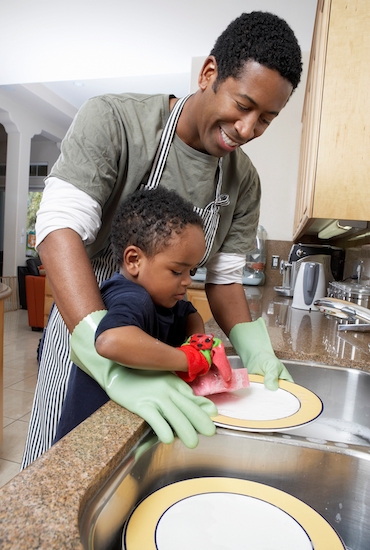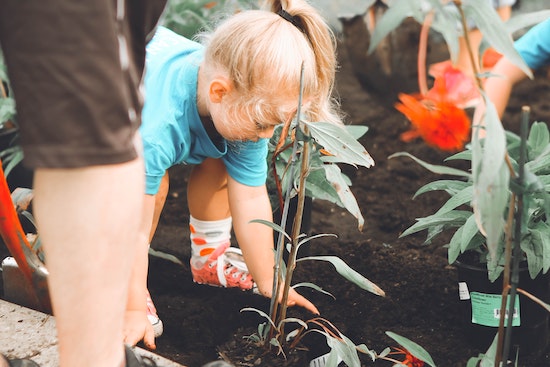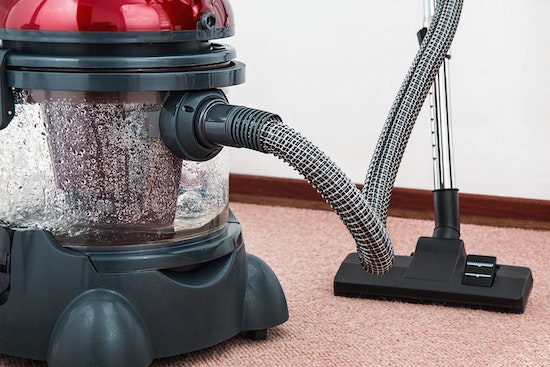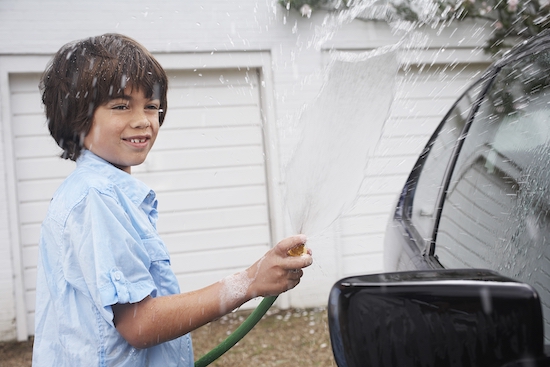Reflections on rights, needs, contribution and privilege in the domestic sphere
Many couples and single parents I speak with complain to me that their children don’t ‘do enough’ or don’t ‘help enough’ around the house with household ‘chores’. While I’m aware that many child-free couples also face issues of sharing the household load equally between them, in this piece, I specifically focus on families and parent/child issues. I’ve addressed the issue between adult partners in another blog.
An issue that often arises hand-in-hand with such complaints is that parents feel taken for granted by their kids. There is resentment that they are simply ‘wallets’ to:
- fund whatever the kids want to buy, or whatever activities the kids want to do and
- ‘chauffeurs’ who exist to drive the kids around.
There is no consideration by the kids that any kind of contribution, exchange or reciprocity on their part could or should be offered in return for the benefits expected and provided.
In effect, parents complain to me that their kids are ‘entitled’ and act as though getting what they want is a right, and not a privilege—not something they need to have contributed towards in any way.
In these circumstances, it’s likely that both kids and parents have a distorted view of their rights and privileges. And here’s a thought: could it be the parents who have taught the kids these very expectations? Entitled kids are raised that way.
What isn’t talked about isn’t learned
In my experience, most parents I meet have never talked with their children about rights, needs, privileges, responsibility, contribution, and fairness within the context of a mutually interdependent ecology, group or community such as a family. In such a mutually interdependent group, including a family, the failure to discuss such important issues can see patterns emerge around entitlement, around giving and taking, which become entrenched.
Without reflection, ongoing discussion and review, the frame that both parties bring to the conversation sets the stage for conflict, volatility and resentment, and power struggles are inevitable. Typically, both sides feel hurt and misunderstood, and are convinced that things are ‘unfair’.

Foundations: the frame
Elsewhere, I’ve written about healthy and unhealthy (lack of OR inflated/distorted) entitlement. I’ve also written about frames and how these shape and dictate how we view a situation—what we consider problematic or normal, our role and the role of others in a situation, and our expectations of ourselves and others. Our frames prescribe what we consider when we approach a situation, and they predict what we will be blind to or actively exclude as irrelevant.
In relation to household tasks and mutual aid in a family household, much begins with the frame that all parties start with.
Many parents I see have a frame of ‘giving their kids all the things they never had’. While there’s a lovely generosity to this, it lacks context and sows the seeds to breed what I call ‘obnoxious humans’.
Need and privilege
Let’s talk about the difference between a need and privilege, specifically as I apply the terms in relation to a family group of adults and children.
A need (in this case, in the context of child-rearing) has to do with the conditions required for a child to thrive. This means basic needs for safety, food, shelter, and loving care. For children, I also see education, healthcare, and guidance from adults to be part of their basic needs. When we speak of children’s rights, we generally relate this to their entitlement to have such needs fulfilled by the adults in their lives. When we think of children’s needs in this way, they relate closely to what are considered basic human rights — entitlements each person should have by virtue of being human.
Once children’s needs are taken care of, provided in a reliable way by the adults in their lives, we enter into the domain of privilege. I see privilege as an additional benefit, an advantage that others may not have. It is not a right, nor is it an entitlement.
A privilege relates to a person’s ability to access resources, to secure benefits (money, time, people, support, knowledge, be given priority, leisure etc). A privilege may be earned, or granted; it may also exist by accident of birth (e.g., being white, male, older, able-bodied, born into wealth). Privilege can also relate to the absence of obstacles getting in the way of something one wants. Privilege can also refer to having dispensation or immunity from having to do certain things, from being accountable in certain ways, or from having to take responsibility or contribute. In short, a privilege confers an advantage on whoever has it relative to those who do not.
In my experience, most people do not reflect on such concepts as needs, rights, and privileges as these play out in their lives. As a result, most people – and therefore, children – have no sense of how privilege (or its absence) plays out in their families and relationships.

Obnoxious humans – all entitlement with no social conscience
To me, an obnoxious human is one with lots of privilege, often, if not almost always, unearned. In addition, I’ve observed that such humans do not usually reflect on their privilege in any significant way. Rather, they take their privilege as their right. To them, the life conditions they were born into (or worked to acquire) and the attendant advantages it brings are just how they think reality ‘should be’. Because their privilege affords them all sorts of advantages in life, without solid reflection about this, the person’s ignorance combined with abundant privilege, can make them destructively entitled. Already possessing more than most, they take it for granted that this is their due/their right. And they act accordingly.
Regardless of the privilege, if a person perceives that their privilege is at risk of being diminished, they will fight tooth and nail to retain the status quo and their level of privilege entitlement. Subjectively, they feel their rights are being taken from them from the moment the discussion about privilege is tabled. What gets talked about has the potential to lead to a change in the status quo – they don’t usually want to make do with what they think of as less. Kiall Rowberry put it this way: “Aaah, privilege. Where every step to equality feels like oppression”[i].
Patriarchy and its framework in relation to men’s and women’s entitlement and privilege is embedded in every aspect of our lives. It’s the ground from which we’re all starting, even in 2021. It can be hard to see it for what it is: a frame that’s served the interests of one group at the expense of others. As recently as March 2019, the Australian Prime Minister Scott Morrison said in Parliament that his party ‘wants to see women rise but not solely on the basis of others [i.e., men] doing worse’. Observing his actions and those of his colleagues in Parliament at the time and since then, I think he meant: “Not if it’s going to mean men have fewer privileges”. Ipso facto, Morrison does not support equality.
It seems issues of fairness and merit, of women being treated equally, can only be talked about if there’s no question of men having less privilege.
Similarly, racism lies at the foundation of Australian society—white Australia has a black history, but we’ve been trying to pretend it doesn’t, ever since whites got here. The gap in privilege between white and indigenous people is as wide as ever. Yet many white people claim there are no differences in the treatment of white people and indigenous people, ignoring clear statistics about mortality, morbidity, infant deaths, poverty, violence, and incarceration. Jane Elliott, famous for her anti-racism work, demonstrated that these same white folk baulk demonstrably when asked if they’d be willing to trade places with a non-white person and face life the way First Nations people have to.
So much for us being ‘the land of the fair go’. Only if you’re white and preferably male.
Those who have more privilege are not only blind to it being privilege, but their privilege means they have a lot at stake in preserving and perpetuating the status quo, and denying that there is anything inherently wrong with the systems that perpetuate and enforce the status quo and privilege their interests.
If things are going to change at the macro level, parents need to address privilege and inequality at the micro-level — in the home, where it starts.
‘The fairies do it’ frame
Without a realistic frame, household tasks are rendered invisible when they are taken care of ‘behind the scenes’ by the adults. I call this ‘the fairies do it’ frame. I also call it ‘the slaves’ frame. In families that unwittingly operate from this frame, things magically happen—clean clothes, food in cupboards, new technology/toys purchased, and so on.
Promoting this level of disconnection from reality breeds obnoxious adults who demonstrate a privileged entitlement that’s not based on contribution, recognition of context and history, fairness, consideration of the whole, of need, or reciprocity.

The chores frame
Another way parents frame household tasks unhelpfully is by referring to them as ‘chores’. This frame primes children to view them in an unnecessarily negative way and teaches kids to see normal household work tasks as drudgery and an imposition.
It’s not surprising that ‘chores’ so easily become battlegrounds, and kids work so hard to get out of doing them.
Teaching kids as a realistic frame on household tasks
The family as ecology or community frame
Parents need to actively work on talking about the family as an ecology, or a community. They need to invite reflection on how they are a group of beings who share a space, interconnected and interdependent, where each must contribute towards the ongoing survival of the whole. And each must share in the work it takes to keep the family going, for the whole to thrive.
Such a frame primes family members to understand and participate in how and when tasks are carried out, share resources, and reduce the opportunities for conflict and argument. A new frame could cover:
- learning that the family, like the planet, is an ecosystem.
- that certain tasks and processes need to happen if a family or household is to function and thrive. That’s reality. If we want an ecology to survive and thrive, we must look after it.
- such tasks need to be shared both for efficiency and to be fair to everyone,
- teaching what’s involved in running a household as an integral part of becoming an independent adult, a contributing member of society.
- a new understanding that, by participating in household tasks, each person in the household contributes to the benefit of everyone, and benefits as well.
Individualist vs collectivist societal frames
An individualistic frame automatically promotes the importance of personal interest as a priority, and denies, minimises, or denigrates the importance of considering the possibility of a collective good. It is no surprise that conflict over household tasks is likely to be exacerbated in societies that have an individualist frame on life that ignores the tempering aspects of collective living.
Often, I hear personal interests framed in competition with the wider collective. Appeals to heed the collective aspect are then framed as an attempt to control and limit individual rights, a burden on ‘deserving’ individuals, or unfairness. Examples abound in language referring to taxes as a ‘burden’ rather than an investment, and care for the vulnerable in society as a ‘drain’, or ‘the nanny state’. In 2015 in Australia, we heard Morrison showcase this kind of shift in frame on the age pension: from a universal entitlement to a ‘welfare payment for those unable to save enough to fund their own retirement’. During 2020–2021, examples of this mindset were reflected in some reactions to mask-wearing during COVID (‘your health is not my responsibility’). It also dominates the discourse in the United States about gun control: ‘my second amendment right to bear arms’ seems to quash any real consideration about addressing others’ rights to not be assaulted or killed.
Such an individualistic frame promotes a false view of the individual as independent, self-made, and somehow existing separate from the society and environment in which they live. It ignores the reality that many factors are outside of our control, unknowable, may even be unpredictable and uncontrollable, and promotes a false and unrealistic view that everyone’s fate depends solely on their own initiative, hard work, and determination. It ignores the reality of how interconnected and how interdependent we all are – for our everyday needs. It certainly ignores the power of privilege at play such as gender, race, education, and class, and how these impact access to resources of all kinds.
It lends itself to talking about people in terms of their ‘net worth’ in dollar terms. In this frame, people, and the environment, are to be exploited for gain and profit. People and the environment are equally consumable; there are no limits as to how much consumerism is permissible.

Such a view leads one to ignore that we are all interdependent. It ignores that our choices and actions have an impact on others and on the liveability of our environment – at the micro and the macro levels. It ignores that we exist in an ecological world where all life exists in a delicate intricate balance. This orientation creates a self-focused short-sightedness that imperils the survival of the whole.
Sadly, this individualistic frame is the dominant frame in most Western societies today. This delusion of separateness from the group sets people up to frame things largely in terms of personal needs, wants, interests and personal rights; it defines happiness in terms of having more than others; and sees achievements as a competition for scarce resources. Success is the reward of privilege. In this frame, there is a me/I, me versus them; there is no we. Through this lense, there can only be winners and losers. By definition, in this way of framing life, winners are entitled to more privilege.
Promoting a collective frame awareness – no privilege without contribution
Parents can begin with teaching children to regard their family group as a community that takes care of them, and to which they must contribute for it to continue to thrive. In such a frame, notions of fairness, give and take, contribution, sharing, reciprocity, consideration of need, responsibility, needs and privilege, are automatically considered and addressed.
If children are brought up with slaves (parents) who do everything for them, and expect little in return, we cannot be surprised when they then act entitled. To them, the world was always so. Why would they want things to be any different? When people take what have been privileges as rights, they tend to get aggressive about holding on to them.
The personal is political. If we can begin by changing the frame we use to one of looking after our households, we’ll increase our chance to change our frame on our society and on our planet—an urgent task if we have any hope of addressing the many environmental crises we face to ensure a liveable planet for future generations.
An exercise to help you reframe
I urge parents to do the following exercise before raising issues of contribution and reciprocity in the household.
- Get different packs of colour coded sticky notes, thick black textas, and coloured textas
- Choose one colour pen per person
- Write out the number and kind of tasks it takes to keep your family household afloat—one task per sticky note
- Use the coloured pens to mark out who currently does each task with a dot in the colour chosen to represent each person.
- Separate out each person’s piles of sticky notes
What do you see?
Ask yourselves these questions:
- Does one person do the greatest number of tasks?
- Who does the most tasks next?
- Is anyone protected from doing tasks, and on what grounds?
- Who benefits most from the way things are now?
- In whose interests is it if things continue the way they are?
- What does the current arrangement teach all household members about how the world works and their place in it when it comes to tasks and privileges?
- Does the current distribution of tasks seem fair? If yes, what makes it fair?
- If not, how wouId you like to change it? Who and what would have to be given up?

Check-in with each other
How are you doing with this conversation? Is either of you feeling defensive? Guilty? Hurt? Critical or criticised?
If you’re feeling reactive, consider whether it has anything to do with you having more privilege? Or with openly discussing how things have been unfair in your household?
Check-in with yourself
Bear in mind that redistributing tasks will mean a reduction of privilege for some. Are you willing to move to a new frame around household tasks for the sake of changing your relationship culture around these issues?
What benefits do you hope will come from changing how you do things in your household?
If you’re giving up some of your past privileges, how are you going to manage any emotional reactivity you might feel (resentment, for example), resistance, and tendencies to relapse?
How will you keep yourself accountable for the changes you are saying you’re signing up for? How will you deal with it when you are asked to be accountable to do what you said you would and honour your agreements?
If you’ve been the fairy or slave until now, how will you manage your old habits of doing invisible labour? How will you handle change-back pressure from others when it comes?
Using the sticky notes you’ve got, experiment with redistributing the tasks so the spread feels more fair, taking into account the age and capacity of each person in the household.
Time to broaden the conversation
Once you feel confident that you, the adults running the household, are on the same page about a new frame for household tasks, you’re ready to call a family meeting.
Present the new frame to them. Say you want to talk about what it takes to run the family. Talk about the fact you (the adults) feel you haven’t done your job as well as you’d like. Acknowledge that, in teaching the kids to think of them as chores, you now realise you’ve set them up to think they’re a burden when they’re a necessary part of a good life. Talk about whether the distribution of tasks feels fair, and if it isn’t, that you want to change how things are done.
Then talk about your job as parents being not only to love and care for your kids, but teach them how to look after themselves and run a household, and live well with other people once they live independently. Specify, that this means teaching them about money, about self-care, about looking after whatever space they live in, and looking after their relationships with the others who share that space in a way that’s fair, just, caring and respectful. And that means thinking about what they give and what they take.
Remember to emphasise this: no privilege without contribution.
- Pull out the sticky notes and talk about how you’ve been trying to represent the work that’s involved in running the family household.
- Ask the kids to add any tasks they think you’ve overlooked. Write down each additional task on its own, new sticky note and colour code who currently does the additional tasks added.
- Distribute the piles according to what each family member currently contributes.
- Pause and ask everyone to look at the piles. Ask each person to consider and discuss:
- is this fair?
- who is carrying more of the load? Who is carrying less of the load?
- how do they feel if they see that the distribution is unfair?
- how could the load be distributed more fairly? What would it look like? Ask them to make suggestions.

Check-in with each family member
Just as you took time to consider how you, as adults, may not have felt purely open and positive about the proposed changes, make room for your kids to react. Their reactions are likely to include resentment, arguments, and attempts at pushing back to maintain the old status quo. Hear them out.
Here, it might be good to talk more about how you want to change how you do things in the household so that the advantages and privileges of being in your household are tied to each member’s contribution. Be clear: you want things to be fair and shared. Talk about how you no longer want to pretend that ‘the fairies do it’. No fairies. No slaves. You want to make your family a community that looks out for each other.
Check-in again
Again, check to hear how the kids are reacting to hearing about this significant shift in household culture.
Experiment as a group with re-allocating tasks to different members. Try on the new distribution as a thought experiment and check in to see what it is about that new pattern that feels fairer.
Are there any disagreements or arguments with the proposed changes? If yes, invite whoever has them to speak. What’s their objection? Do they think or feel that redistribution is unfair? Is there a better way to redistribute tasks that feels fairer? Try that on as a thought experiment.
Putting it in action
After more discussion, can you agree to trial a new distribution of tasks?
Agree on the following things:
- a time period for the trial
- Set a date to review how the new programme is working for each person and for the family.
- On the review date, DO IT! Check in with each person to see how they felt about the new task distribution. Check whether peoples’ views about tasks has changed at all since introducing the exercise.
- Ask how each person’s experience of being in the family community has changed – is it better/same/worse for them under this new system?
- Tweak and make adjustments as needed. Set the next date for review.
- Review. Repeat.
If you can see that you need more help in resetting your family culture and frames around household tasks and their distribution, call me.

[i] Social media post

